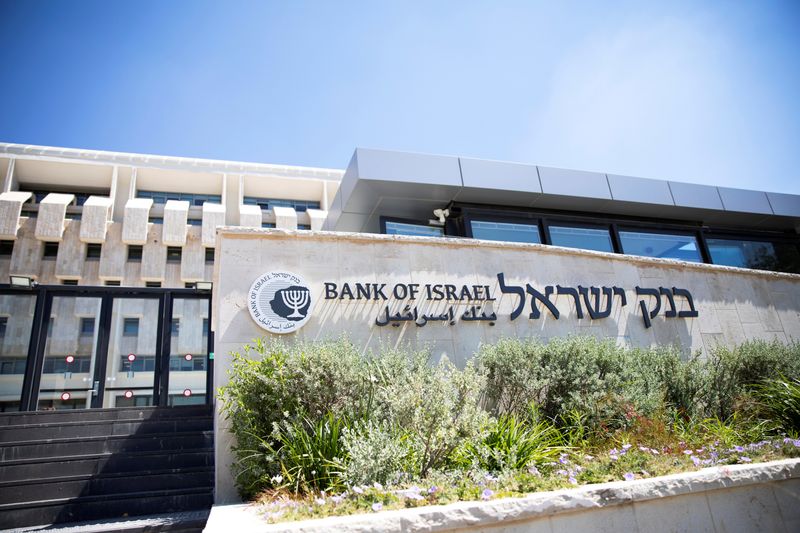By Steven Scheer and Ari Rabinovitch
JERUSALEM (Reuters) -The Bank of Israel raised its benchmark interest rate by half a point on Monday, and will likely continue its increases a bit more in coming months, saying it seeks to curb inflation running above 5%.
The central bank as expected lifted its key rate to a 14-year high of 3.75% from 3.25%. In April, policymakers began raising the rate from 0.1% and have been aggressive during a front-loading process, but most analysts believe the tightening cycle is close to over.
Bank of Israel Governor Amir Yaron said monetary policy was already "restrictive" but expressed concerns over inflation, even though it is lower than in much of the West. The labour market is tight and the new government is set to spend heavily to meet coalition agreements.
While the central bank's own economists project the key rate at 4% in a year's time - meaning there would be just one more quarter-point hike - Yaron could not commit to that peak.
Speaking to reporters, he said the pace of hikes would continue to be data dependent. "We won't hesitate to raise rates further," Yaron said, adding he expects inflation to start easing in the second quarter. "I believe that interest rates in general will have to remain at a high level."
Despite the rate hikes, Israel's annual inflation rose to a 14-year high of 5.3% in November from 5.1% in October - well above the government's 1%-3% annual target range and fuelling public anger at spiking living costs.
The central bank's staff sees inflation at 3% in a year, easing to 2% in 2024.
"We are determined to reduce the inflation rate and to return it to within the target range," Yaron said.
A new government led by Benjamin Netanyahu, whose coalition partners have made hefty budget demands, took office this week. Yaron cautioned against a spike in the deficit and debt burden.
"It is important that the new government acts with the necessary responsibility with regard to fiscal policy" and on public sector wage agreements, he said. "It is important to remember that the Israeli economy cannot take for granted the high regard from the rating entities and international financial institutions."

Israel's economy grew an annualised 1.9% in the third quarter from the second quarter, slower than a 7.4% pace the prior three months.
Growth is expected at 2.8% in 2023, revised down from 3%, and 3.5% in 2024, according to the Bank of Israel's updated forecast.